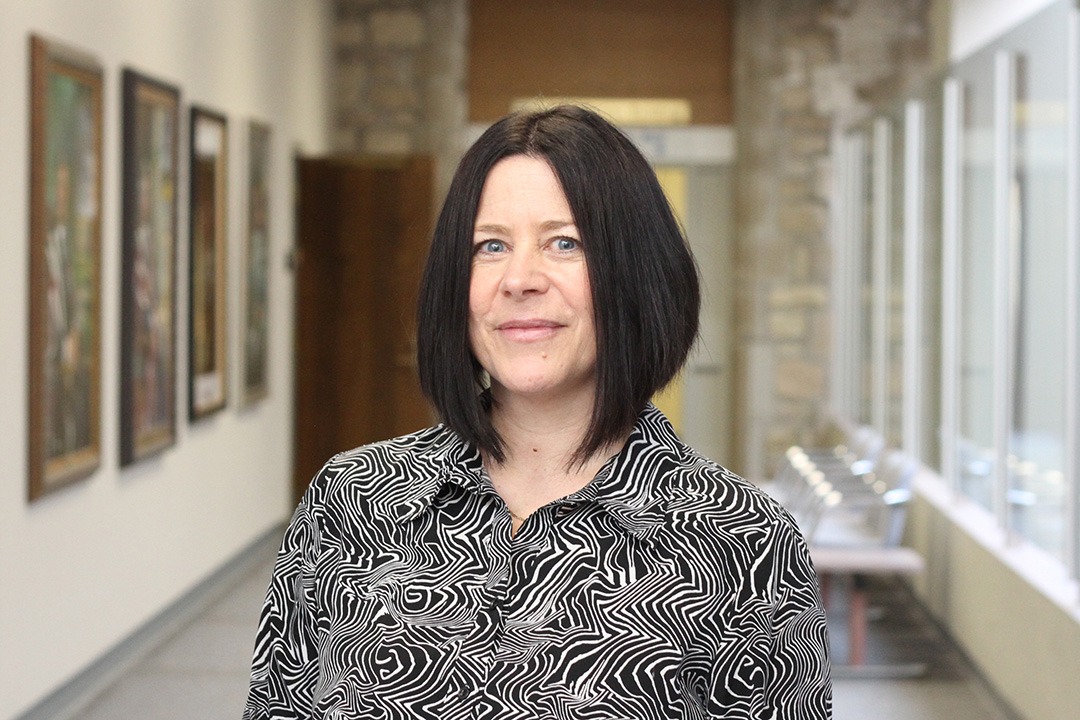
Better data means better decisions for Baraniuk
A talent for building bridges in the world of information and communication technology (ICT) has resulted in a more robust technology ecosystem for the University of Saskatchewan (USask). Thanks to the efforts of Shari Baraniuk and her team of over 200 dedicated and professional staff, that means better data to support all levels of decision-making at the university.
By Chris MorinWhile technology becomes easier to use, it similarly becomes far more complex in an institution the size of USask.
“When you get to the level of a university, there is such a wide variety of operations from academics to clinical, to consumer services to sports,” she said. “We need to make sure we have both a comprehensive and cohesive data environment that will support our entire campus.”
“Technology has become core to everything we do. Our dependence on technology is both exhilarating and scary. We can do so much more than what we thought possible just a few years ago, but with that increased dependence also comes risk,” Baraniuk noted. “If the technology does not work, it hampers our ability to perform fundamental tasks like communicating with our people.”
While it might not be apparent to the average person on campus, as chief information officer and associate vice-president with information and communications technology (ICT), Baraniuk and her team work behind-the-scenes to ensure that all technology is operating effectively and that USask data remains secure while maintaining the highest quality possible.
“We need to make sure that our data is used effectively to make the necessary decisions to be The University the World Needs,” said Baraniuk. “People might not understand the full complexity of this. There really aren’t any easy buttons when it comes to technology. There are so many intricate components that we have to manage underneath.”
Technology has experienced a rapid transformation since Baraniuk first became CIO at USask five years ago. Data has become an increasingly indispensable institution-wide asset. It is with pride that Baraniuk noted that her team has not only embraced these technology changes, but has shifted to being able to respond to the increased demands for technology solutions while also increasing efficiencies.
It has been an extremely complex and challenging task, she said. But, having a wide swath of experiences in a variety of environments, it’s work that she was perfectly poised to tackle.
Raised in Manitoba, Baraniuk earned a Bachelor of Commerce (Honours) from the University of Manitoba and an MBA in Information Technology Management from Athabasca University. When she began her career, computers “weren’t exactly on the radar,” Baraniuk said.
“I got headhunted by a company that was looking for computer consultants, but not from computer science. They wanted more of that business focus.”
She accepted, and began her journey with IT. Although she started her career in more technical positions, Baraniuk soon transitioned into roles with a business focus. It’s that immersion in both the technical and business world that has armed Baraniuk with the skills to take on a variety of projects in her career.
“My career evolved through a number of companies, including developing the user interface for Pacific Bell when call features were first introduced, to designing a grain train scheduling system for CP Rail,” said Baraniuk. “My husband and I then moved to Saskatoon, where I first started with the university in a more technical role. I then moved to the City of Saskatoon for a number of years before a management opportunity opened up at the university, and I was able to return to campus. This is such an amazing place to work with the breadth of work that happens here, along with the enthusiasm of our students and the dedication and passion of our faculty and staff.”
“We launched the technology plan in November and the level of engagement with ensuring we are focusing on and implementing the technology the university needs has been amazing,” she added. “I can’t take credit for that. I did what I could to help my team shine, and they really took that opportunity to move forward with it.”
While helping to enable The University the World Needs through technology is a task that Baraniuk takes to heart, she is quick to note it has been a joint effort.
“This really is a story about how so many people have come together to work as a singular team. We have become more engaged and more in tune with the needs and priorities of the whole institution,” said Baraniuk. “It has been a significant culture shift. One that has definitely helped us through this difficult time with COVID-19.”
With the majority of the USask community now working remotely due to the COVID-19 pandemic, ensuring that ICT services are responsive, efficient and effective has never been more important.

